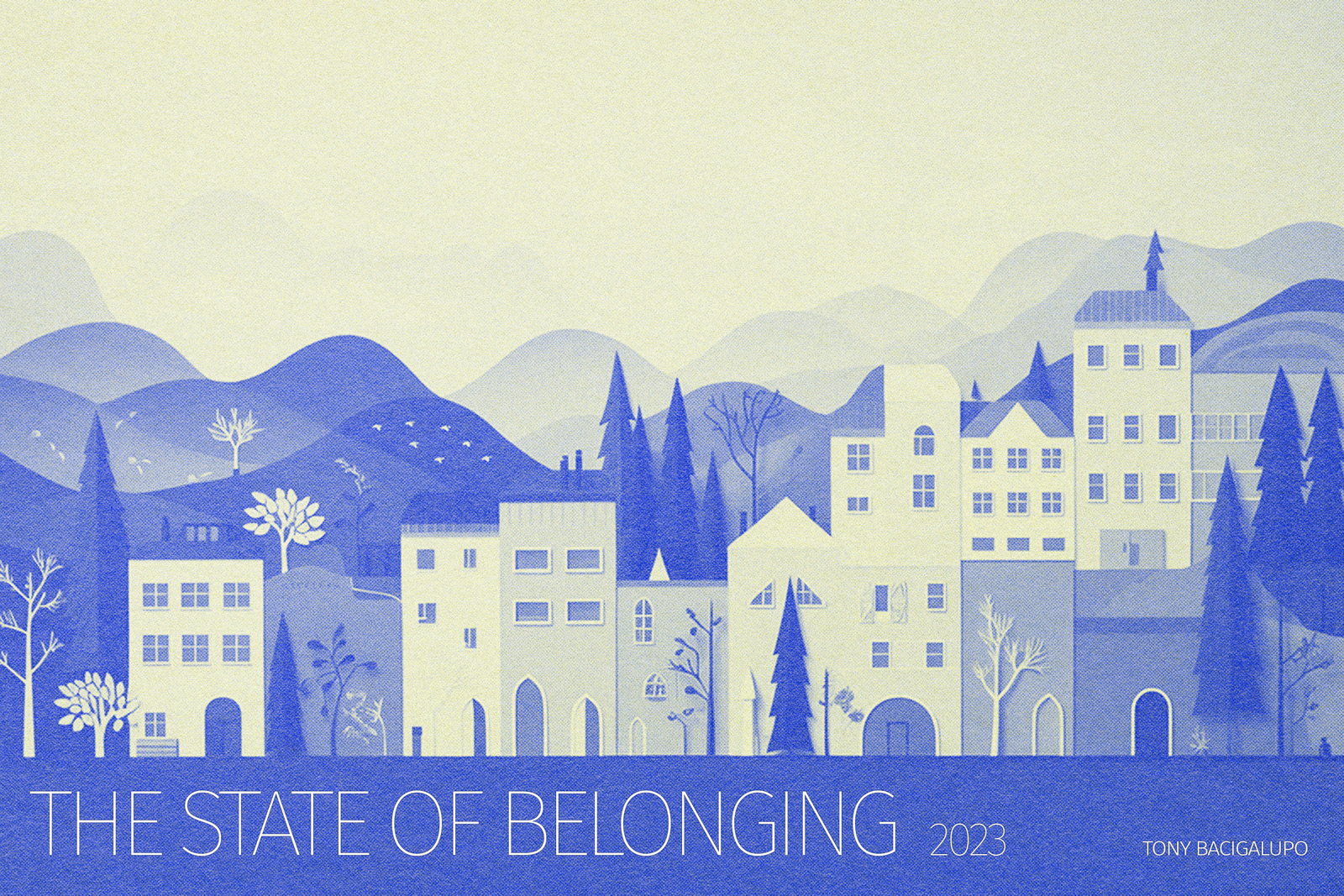Update: The report is here!
So many of us are isolated. And not just in an "I've been working from home too many days in a row and I forgot what real pants feel like" kind of way. We're isolated in a way that's causing real, tangible consequences. It's leading to physical illness, screen addiction, divisiveness, toxicity, self harm, and a whole lot more.
But here's the good news: We can fix it—and we don't need a high-tech solution. We can use simple, free, and readily available solutions.
So, I'm rolling up my sleeves and diving into the world of loneliness and isolation. I'm going to find out what works, identify the low-hanging fruit, and focus on those areas first.
To better understand where these opportunities are hiding, I'm creating a State of Belonging Report—this will lay out the key areas of interest and concern, the impact being felt by the current situation, and what people are doing to address the needs, and ultimately make recommendations for how different stakeholders can take action.
Already with me on this? Register for updates here. I've also got posts about this on Instagram, Twitter, and LinkedIn.
Why this is important
Our collective cultural fabric has been unraveling for decades. The result? A staggering 75% of Americans aren't satisfied with their friendships. Nearly 1 in 4 Americans don't have someone to confide in. Civic engagement is at an all-time low.
And the consequences are dire. Loneliness is as deadly as obesity and smoking 15 cigarettes a day. Isolation doesn't just lead to personal health issues—it creates a breeding ground for toxicity and harm.
And technology continues to get better at removing us from reality—with ever-improving addictive social media algorithms, AI chatbot girlfriends, and Apple's fancy new VR googles on the horizon, the temptation to slip away from society altogether grows.
But there's hope. We can counteract these effects through simple activities and gatherings that anyone can engage in, anywhere.
Why we can make a difference
Throughout my life, I've seen how good ideas can spread like wildfire and make a world-changing impact. Take Amit Gupta's casual Jelly coworking sessions, for example. He started them out of his midtown Manhattan apartment in 2006, and they quickly caught on. Friends and strangers alike found a solution to their need to get out of the house and work alongside interesting creative peers—and it was a hit. Not only did friendships and collaborations emerge from that project, the idea grew.
When Amit open-sourced Jelly in the fall of 2007, new groups started sprouting up in dozens of cities all around the world. Many of these communities formed the initial cultural cores of their cities' first coworking spaces.
I was fortunate to witness firsthand just how powerful this simple idea was when it was run well and when others were inspired and empowered to remix the idea and start their own versions.
I've seen that happen with the greater coworking movement—which transformed the world's relationship with workspace—and programs like BarCamp, which have been held in hundreds of cities, and many others.
The more of these we have, the better. Easy, scalable solutions most anyone can implement most anywhere. What happens when we get the right ideas into the right hands?
- What happens when a homeowner is inspired to organize a local block party after reading the story of a successful one that's happening in Long Beach?
- What happens when the manager of a coworking space in Tempe is inspired to run a great community activity they heard about that was being run in a library in Burlington?
- What happens when someone who spends too much time on the couch is inspired to go play on swings in a local playground?
- What happens when someone new to a city is inspired to go for a walk in their neighborhood, and they discover there's a lovely art center nearby that has volunteer opportunities and upcoming events to attend?
No one solution will work for everyone—but from what I've seen so far, we can make a lot of headway by identifying the most reachable, receptive audiences and the solutions that can be most easily and effectively spread.
Let's identify some of those best ideas and get them spreading!
How you can contribute
Let me know what you would want to see in this report. What would make it valuable and useful to you?
And: do you know of a person, project, or organization that I should include? I'm looking for stories of:
- Exciting new projects
- Local community programs
- Welcoming gathering/event spaces
- Neighborhood initiatives
- Simple gatherings
Pass along anything you find to me on Instagram, Twitter, or email: tony [at] belongfulness.com.
Want to get the report when it's ready? Sign up for updates here.
